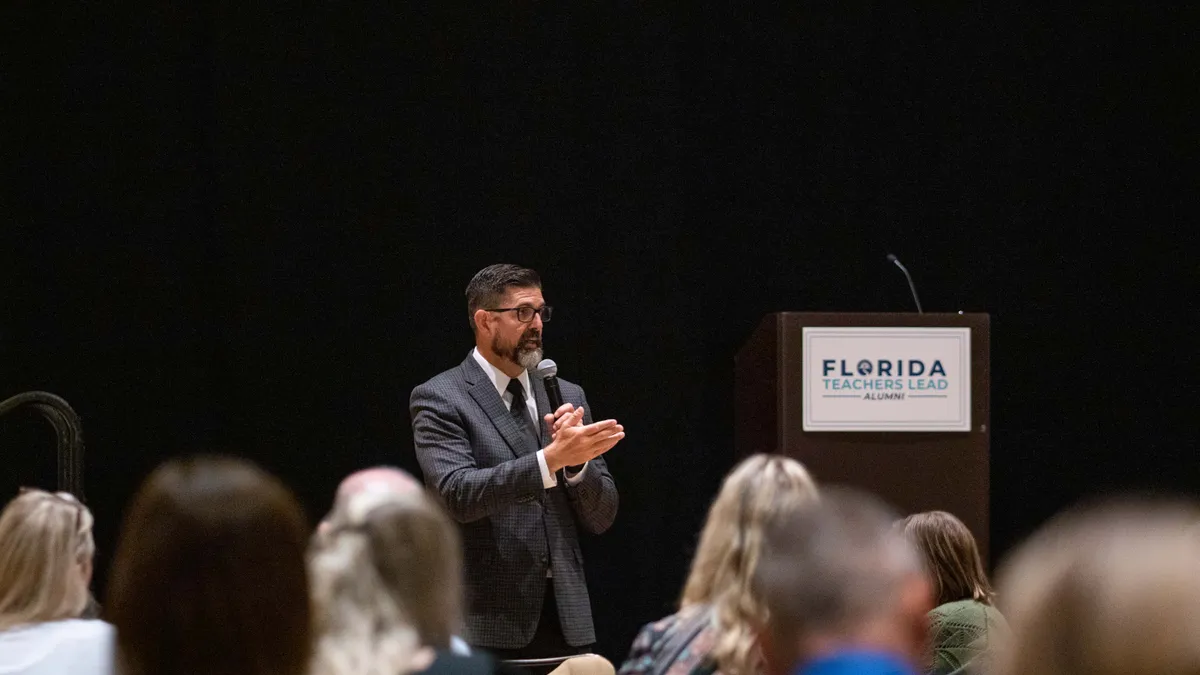UPDATE: Jan. 25, 2023: The College Board said Tuesday that it will soon release a revised AP African American Studies course framework, incorporating feedback from high schools and colleges gathered during the pilot process. The College Board called this revision process "a standard part of any new AP course" and said "frameworks often change significantly as a result." The framework is now expected to be released as soon as Feb. 1, which would mark the first day of Black History Month. Previously, the College Board had said it would post the updated framework on its website in spring 2024.
_________________________________
The Florida Department of Education has rejected an Advanced Placement African American Studies course, saying in a recent letter to the College Board that the course is "inexplicably contrary to Florida law and significantly lacks educational value."
An 81-page preview of the AP African American Studies course that has not yet been made publicly available by the College Board, but was published by the Florida Standard, shows the course includes information on:
- The origins of the African diaspora.
- Slavery.
- Black politics, arts and literature.
- Civil rights movements and diversity within Black communities, including Black queer studies.
Florida Commissioner of Education Manny Diaz Jr. cited "critical race theory" among "other obvious violations of Florida law" as reasons for the state department's decision to reject the course. "We do not accept woke indoctrination masquerading as education," Diaz said.
When the state board and legislature passed anti-critical race theory measures for K-12 schools, advocates warned it would limit discussions around past and present race-related experiences of Black Americans. Teachers from Florida confirmed to K-12 Dive that they had limited discussions on African American experiences and history following the measures' implementation. However, the state currently allows an AP course on European History.
Bryan Griffin, press secretary for Florida Gov. Ron DeSantis, said in a statement that the department rejected the AP African American Studies course because it "lacks educational value and historical accuracy."
A list provided to K-12 Dive by the Florida Department of Education details its concerns the department has with the course, including recommended readings of Kimberlé Crenshaw, Angela Davis and Bell Hooks, as well as topics like intersectionality and activism, Black queer studies, movements for Black lives, Black feminism in literature, reparations and the 21st century struggles of Black people.
The College Board described the course, which was 10 years in the making, as one that draws "on the wealth of scholarship from college faculty and the deep experience of teachers across the country" and "is designed to offer high school students an evidence-based introduction to African American Studies."
The course, College Board said in a statement, is meant to "explore the vital contributions and experiences of African Americans."
"As with all AP courses in the humanities, it is not a theory course; students instead immerse themselves in primary sources," College Board added. "The course is designed to encourage students to examine each theme from a variety of perspectives, without ideology, in line with the field’s tradition of debates."
The AP African American Studies course began piloting in fall 2022 at 60 schools nationwide and will expand next school year, according to the College Board. It is expected to be available to all interested high schools starting in 2024-25.
As part of the course, students will be required to weigh evidence, analyze different viewpoints, and "come to their own conclusions," said the College Board. "AP students are never required to agree with a particular opinion or adopt a particular ideology, but they are expected to analyze different perspectives."
Florida is one of many Republican states that have passed regulations around discussions and instruction on race and LGBTQ issues. DeSantis has cited parental rights and called some race-related instruction in public schools "state-sanctioned racism."
The National Parents Union said in a statement it was "outraged" by the rejection of the AP course. "Make no mistake: This is a direct attack on the Black and all BIPOC [Black, Indigenous, and people of color] communities," the organization said.
DeSantis and members of the Florida Board of Education have been among policymakers on the frontline of the efforts to regulate curriculum, putting in place restrictions on instruction, consequences for violating those prohibitions, and required training on what can and cannot be taught and discussed in the classroom.
White House press secretary Karine Jean-Pierre said Florida has "banned more books in schools and libraries than almost every other state in the country. She called Florida's decision "incomprehensible" and "concerning" in a briefing on Friday, adding that the state seeks to block the study of Black Americans.























